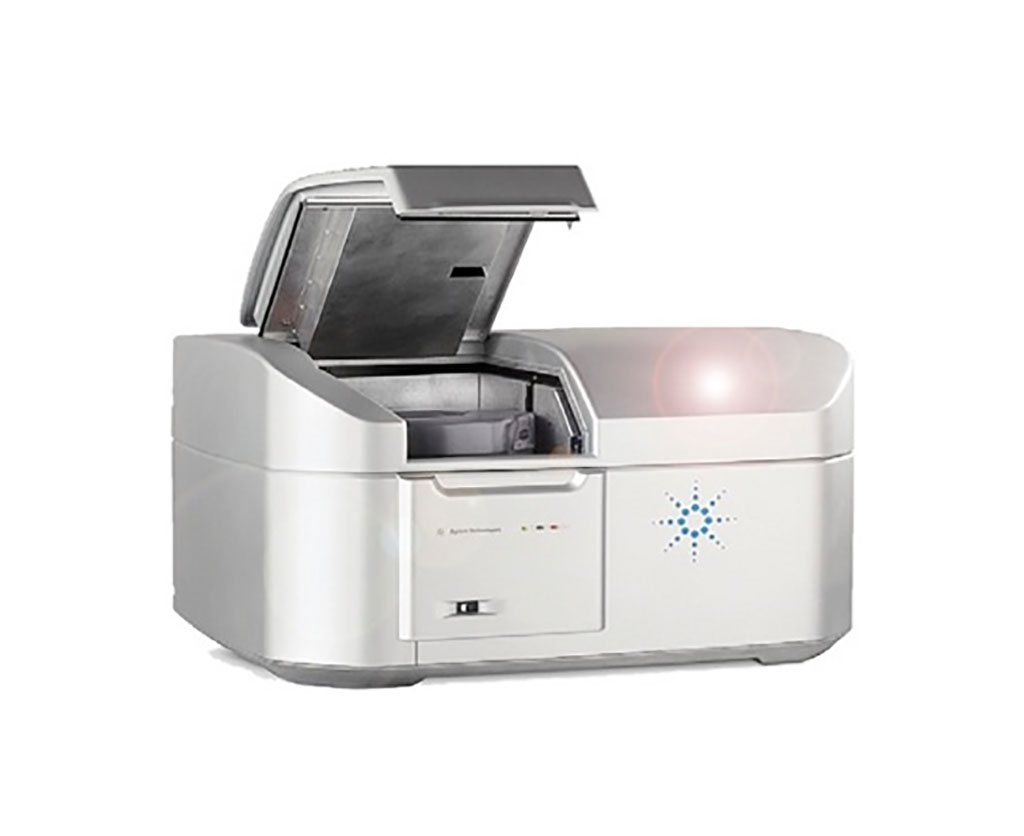Novel Urinary miRNA Biomarker for Early Detection of Colorectal Cancer
Posted on 07 Feb 2022
Colorectal cancer (CRC) is a leading cause of cancer-related death worldwide. Pathological diagnosis using biopsy samples acquired during a colonoscopy (CS) is the gold standard for CRC diagnosis.
CS screening has a high percentage of CRC and adenomas identification, but it is not extensively used for screening testing due to its invasiveness and expensive cost. The fecal immunochemical test (FIT) has been extensively accepted as a screening method for CRC detection. The multitarget stool DNA screening test, which detects CRC-related genetic alterations, was developed in recent years to diagnose CRC; nevertheless, there is inadequate data to justify its use instead of FIT.

Gastroenterologists at the Nagoya City University Graduate School of Medical Sciences (Nagoya, Japan) and their colleagues studied 522 urine samples from 223 patients with CRC and 299 healthy controls (HCs). All samples were collected from September 2012 to August 2018 at three Japanese institutions. They included males and females aged 20–90 years. Patients with CRC (CRC group) had an existing cancer diagnosis, established by histological and endoscopic findings, and no prior treatment on entry.
The team extracted microRNAs (miRNAs) using the miRNeasy Serum/Plasma Kit (Qiagen, Valencia, CA, USA). Extraction of miRNAs from formalin-fixed paraffin-embedded (FFPE) tissues was conducted using the Qiagen miRNeasy FFPE Kit. miRNA microarray assays were conducted and after hybridization, microarrays were scanned by the Agilent DNA Microarray Scanner (Agilent Technologies Santa Clara, CA, USA; www.agilent.com). Quantitative Reverse Transcription-Polymerase Chain Reaction (qRT-PCR) were conducted using the by 7500 Fast Real-Time PCR system (Applied Biosystems, Waltham, MA, USA).
The investigators reported that eight of the 11 potential miRNAs discovered by microarray studies showed inconsistent urine sample expression. As a result, in the second training cohort, the authors used qRT-PCR to quantify three miRNAs. The CRC group had significantly greater urine expression levels of miR-129-1-3p, miR-566, and miR-598-5p than the healthy control (HC) group, according to univariate analysis. In addition, multivariate analysis demonstrated that urinary levels of miR-129-1-3p and miR-566 were independent indicators for CRC diagnosis.
The scientists then looked into the ability to diagnose early-stage CRC. Both urinary miR-129-1-3p and miR-566 levels were substantially greater in the stage 0/I CRC group than in the HC group in a comparison between HC volunteers and patients with early-stage CRC. With an AUC of 0.845, this urine miRNA biomarker panel had excellent power to identify patients with stage 0/I CRC from HC subjects. The expression levels of miR-129-1-3p and miR-566 in urine, on the other hand, did not correspond with the disease stage.
Both miR-129 and miR-566 had no link with the overall survival of patients with rectal cancer, but this urine biomarker outperformed currently utilized tumor markers regardless of illness stage. This urinary combination biomarker panel had a sensitivity of 82.8% for stage 0/I CRC, but serum CEA and CA19-9 only had a sensitivity of 11.1% for stage 0/I CRC. These findings imply that the well-established urine biomarker panel can be used as a non-invasive screening method for CRC detection.
The authors concluded that their study demonstrated that the urinary biomarker panel combining miR-129-1-3p and miR-566 is a novel diagnostic non-invasive biomarker to detect CRC, even at an early stage. While the sensitivity of FIT for detecting advanced adenoma (i.e., stage 0 CRC) was reportedly 11–56%, the urinary biomarker showed good sensitivity of 82.8% for detecting stage 0/I CRC patients. The study was published on January 17, 2022 in the journal Cancers.
Related Links:
Nagoya City University Graduate School of Medical Sciences
Qiagen
Agilent Technologies
Applied Biosystems









 Analyzer.jpg)



